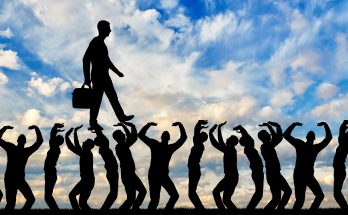From the day I joined the workforce at the tender age of 10, babysitting for people in my neighborhood and mowing lawns, I was a hustler. I learned quickly that the more I worked, the more cash I had, and I liked earning money. I juggled multiple jobs throughout my teens and most of my adult life, partly out of necessity so I could pay the bills, but also because I fell prey to what is commonly known as the “hustle mentality.”
No rest for the hustler
While many people subscribe to the notion of “work hard – play hard”, even more seem to find themselves trapped in the mode of “work hard – work harder.” I was deep in that cycle when the pandemic hit, working 45+ hours a week at my day job, picking up multiple freelance writing gigs, running a side biz of buying and selling items on Facebook Marketplace, and even acting in the occasional commercial.
It didn’t feel like I was really working unless I had at least two jobs. Sleep was ignored, as was my general health, and while I tried to be a decent parent and, after I married, a present partner to my spouse, my relationships with my family suffered too.
I missed a lot of my kids’ recitals and sports events because working always, always came first, and I was often way too tired to participate in much of anything. It seemed like I never stopped running, and in truth, I sometimes wondered what, or who, I was even running for.
Forced mellow
When businesses started shutting down last year, I found myself at a loss. Things slowed at my full-time job, which I was now doing from home, and my other work started to dry up. I went from almost never having free time to having what felt like too much. I didn’t know what to do with it. It was all very uncomfortable, almost painful.
At first (like a lot of us) I spent too many hours laying on the couch, mentally bemoaning the state of the world while I scrolled through Netflix. After a while, however, I started to notice some profound differences in myself.
My new love of Netflix aside, I realized I was feeling more rested. I started going for long walks in the mornings, and doing yoga in the afternoons. I slept better. I read books again, something that had fallen by the wayside in my busy life and had bothered me profoundly as reading had always been one of my greatest joys.
My chronic, free-floating anxiety, which I’ve struggled with since my early teens, didn’t disappear, but it became more manageable. I went from episodes that had become almost daily events of me sitting on the edge of my bed every morning, gasping for breath, pouring sweat, to moments that felt like twinges compared to my previous, full-on attacks.
Those differences were soon reflected in other areas of my life, too. There was more time to talk to my kids, my husband, and my parents. I called friends I hadn’t seen in years and caught up with them. I painted a wall in my house, then another. I planted flowers in my backyard. I wrote short stories. And sometimes, I just sat and daydreamed.
Having the time to quiet my mind a bit and think helped me see that the hustle wasn’t only meaningless insofar as the bigger picture, it was also slowly killing me. And this wasn’t just about the demise of my physical and mental health, it was also about my creativity, my imagination, and my spirit. To be given the gift of time, time to invent, to love, to rest was, quite simply, something I couldn’t refuse.
A big change
I decided to quit my full-time job and look for something with less hours, while continuing to pick up freelance writing gigs on the side, a decision I realize is steeped in privilege, as I have a spouse who makes a good income and has health insurance.
While my getting caught up in the hustle initially came from need, as my jobs never seemed to pay enough to cover the rent when I was single and then a single parent, after I married my husband, I had the good fortune of having someone to fall back on.
For many people, that hustle mentality is necessary due to our country’s lack of a living wage, and it takes two, sometimes three jobs just to make ends meet. For me, I kept my hustle going long after I needed it to survive.
I was sure that the lack of a 50+ hour workweek would terrify me. But instead, I felt relieved. The hustle mentality was no longer something I wanted to be a part of, was no longer who I was, and that maybe that person was never really me at all.
Finding zen
Today, I work about 35 hours a week. I’m a part-time contract employee for a company that is 100 percent remote. I have a few solid freelance clients for my writing business, but no longer chase after every opportunity or try for every new gig that pops up on my social media feed. I still watch a lot of Netflix, but I also take better care of myself, my family, and my friendships. I carve out time for the things that really matter, and work is no longer the center of my universe.
And I know I’m not alone. Across the country, many companies are realizing that employees can work from home and still be productive, and that it’s not necessary to work people into the ground to get that productivity. This is, in part, due to people like me, who are tired of the hustle and simply don’t want to do it anymore, who don’t need to do it anymore, who realize it’s okay to do just a bit less. While there is no doubt that the COVID-19 pandemic has been one of the most devastating tragedies of our lifetime, it also made some of us rethink who we are and what we want.
It shouldn’t have taken a pandemic to wake me up to the hamster wheel I was stuck on, but I’m grateful that I was able to leave the hustle behind once and for all, and that this less-busy me has helped center my life in ways I couldn’t have imagined. I may have lost my hustle but in the end, I found my peace of mind.



